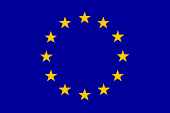
The EGU2019 Session below is part of the FOSTER Open Science Clinique presence at EGU, Vienna, Austria.
Abstract submission will open soon!
Session EOS3.2: Open Science and Reproducible Research
Open Science is a broad movement embracing Open Data, Open Access, Open Educational Resources, Open Source, Open Methodology, and Open Peer Review to transparently publish and share scientific research. These broad topics pose great challenges for researchers, and to support the goals of the various Openness initiatives, this session is not meant to elaborate abstractly on Open Science. Rather, it looks at what is possible nowadays and what is ready for application in geosciences. The speakers present success stories, failures, best practices, solutions and introduce networks. It is aimed to show how researchers, citizens, funding agencies, governments and other stakeholders can benefit from Open Science in various flavors, acknowledging the drawbacks and highlighting the opportunities available for geoscientists.
The session shall open a space to exchange experiences and to present either successful examples or failed efforts. Learning from others and understanding what to adopt and what to change are to help towards own undertakings and new initiatives, so that they become successes.
The topics may be related but are not limited to the following challenges and opportunities around Open Science with and for Society:
i) Reproducibility and openly available workflows & tools enable new levels of collaboration between scientists and the public. Journals, researchers and funders drive forward the agenda on many aspects of openness. But still the vast majority of papers analyzing any kind of data is not accompanied by data, code and documentation that let you easily reproduce the calculations that underpin the paper and how to increase reproducibility in areas like machine learning and big data are still open.
ii) Open Science not only addresses journal publications, but scientific research results in general, including tweets, blog posts, article figures, data, models, algorithms, software, tools, notebooks, laboratory designs, recipes, samples and much more. All these pieces are important to everyday research and their accessibility is addressed at all levels for everyone, without fees. They relate to (and make harder) the communication, review, and discussion of research results and consider changing needs regarding incentives, quality assessment, metrics, impact, reputation, grants and funding. Open Science requires research and science communicators to become proficient in questions of licensing, policy-making, infrastructures and scientific heritage, while safeguarding the dynamic nature of science and its evolving forms.
iii) Open Science is an excellent tool to meet the increasing public interest in research results, exemplified by the uptake of Citizen Science, by establishing cooperative platforms for Public Sector Information and governance data, to promote the active engagement of the whole society, including decision-makers, governmental agencies and the general public, and contribute to a true democratisation of knowledge.
iv) Open Science offers an opportunity for young researchers to adapt to a new workflow for performing impacting research and forming unexpected collaborations. An open way of working builds a strong research profile, while addressing funder ambitions on stimulating innovation and economic growth through removing all barriers to data and knowledge sharing.

 Unless otherwise stated, all materials created by the FOSTER consortium are licensed under a CREATIVE COMMONS
ATTRIBUTION 4.0 INTERNATIONAL LICENSE.
Unless otherwise stated, all materials created by the FOSTER consortium are licensed under a CREATIVE COMMONS
ATTRIBUTION 4.0 INTERNATIONAL LICENSE.
 This project has received funding from the European Union’s Seventh Framework Programme for research,
technological development and demonstration under grant agreement no 612425.
This project has received funding from the European Union’s Seventh Framework Programme for research,
technological development and demonstration under grant agreement no 612425.